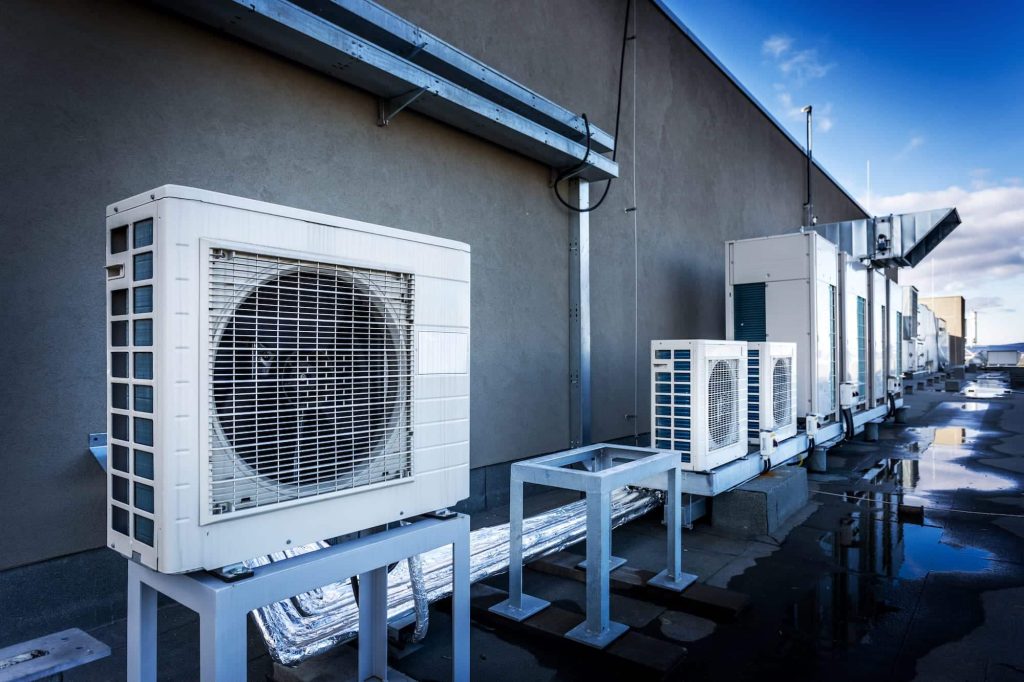When we talk about modern comfort and convenience in our homes and workplaces, one term that often comes up is HVAC. But what does HVAC stand for, and why is it so crucial in our daily lives?

Understanding HVAC: The Basics – What Does HVAC Stand For?
So, what does HVAC stand for? HVAC is an acronym for Heating, Ventilation, and Air Conditioning. This system is integral to maintaining indoor comfort and air quality. Let’s break down each component to understand its importance.
Heating: This part of the system ensures that your indoor spaces remain warm during cold weather. Various heating systems can be used, including furnaces, boilers, and heat pumps. Each of these systems works differently but ultimately aims to provide consistent and controlled heating to keep you comfortable when temperatures drop.
Ventilation: Ventilation is vital for maintaining indoor air quality. It involves exchanging or replacing air within a space to provide high indoor air quality. This process includes removing moisture, smoke, odors, heat, dust, airborne bacteria, and carbon dioxide, and replenishing oxygen. Proper ventilation is essential to prevent indoor air pollution and to ensure that the air you breathe is clean and healthy.
Air Conditioning: Air conditioning is the counterpart to heating. It provides cooling and humidity control for your indoor spaces. During hot weather, an air conditioning system helps to cool down your environment, making it comfortable and conducive for work or relaxation.
Why Is HVAC Important?
Now that we’ve answered “what does HVAC stand for,” let’s explore why it’s essential. HVAC systems play a crucial role in both residential and commercial settings for several reasons:
- Comfort: One of the primary purposes of an HVAC system is to maintain a comfortable indoor environment. Whether it’s keeping you warm during the winter or cool during the summer, HVAC systems are designed to create a comfortable living or working space.
- Health: Proper ventilation and air filtration provided by HVAC systems help to improve indoor air quality. By removing pollutants, allergens, and other harmful particles from the air, HVAC systems contribute to better respiratory health and overall well-being.
- Energy Efficiency: Modern HVAC systems are designed to be energy efficient, helping to reduce energy consumption and lower utility bills. With advancements in technology, many HVAC systems now include smart features that optimize performance and efficiency.
- Protection of Property: By maintaining consistent indoor temperatures and humidity levels, HVAC systems help to protect your property. This is especially important in preventing damage to furniture, electronics, and other belongings that can be sensitive to extreme temperatures and humidity.
- Productivity: In commercial settings, a well-functioning HVAC system can significantly impact productivity. Comfortable employees are more likely to perform better, and customers are more likely to have a positive experience in a climate-controlled environment.
Choosing the Right HVAC System
When considering what does HVAC stand for, it’s also essential to understand the various types of systems available. There are several options, each with its benefits:
Split Systems: These are the most common types of HVAC systems, consisting of separate units for heating and cooling. They are highly efficient and can be installed in a variety of settings.
Hybrid Systems: These systems combine a traditional gas furnace with an electric heat pump, offering both energy efficiency and cost savings.
Duct-Free Systems: Ideal for buildings without ductwork, these systems provide targeted heating and cooling for specific areas.
Packaged Systems: These systems contain all the necessary components in a single unit, making them suitable for smaller spaces.
Final Word
In summary, what does HVAC stand for? It stands for Heating, Ventilation, and Air Conditioning—an essential system that significantly enhances our indoor comfort and health.
Understanding the components and benefits of HVAC systems can help you make informed decisions about the best options for your needs.



